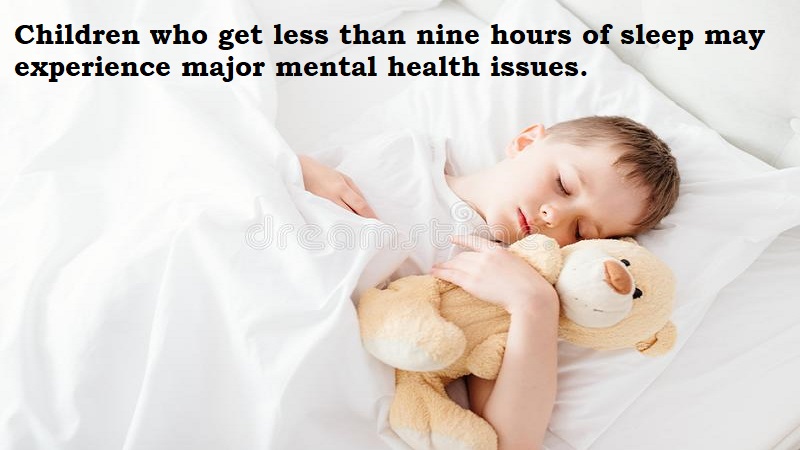
According to a recent study conducted by the University of Maryland School of Medicine (UMSOM), children in elementary school who get less than nine hours of sleep each night may experience significant differences in the brain regions that control memory and intelligence compared to children who get the recommended nine to twelve hours of sleep each night. The Lancet Child and Adolescent Health journal published the findings. According to ANI, the changes were linked to serious mental health problems like sadness, anxiety, and impulsive behaviour in people who receive insufficient sleep.
Additionally, issues with memory, problem-solving, and decision-making have been linked to sleep deprivation. However, no studies have yet looked at how little sleep affects pre-teens’ neurocognitive development over the long run.
The Adolescent Brain Cognitive Development (ABCD) study included more than 8,300 children between the ages of 9 and 10 who provided the data that the researchers used to create this tale. The National Institutes of Health (NIH) is funding this study, which is the largest long-term assessment of child health and brain development in the US.
Ze Wang, PhD, Professor at UMSOM, states that ‘We found that children with insufficient sleep, less than nine hours per night, at the beginning of the study, had less grey matter or smaller volume in certain areas of the brain responsible for attention, memory, and inhibition control compared to those with healthy sleep habits.” He further added, “These differences persisted after two years, a concerning finding that suggests long-term harm for those who do not get enough sleep.’
This is one of the first studies to demonstrate potential long-term effects of sleep deprivation on the neurocognitive growth of young children.
The American Academy of Sleep Medicine advised children aged 6 to 12 to get the suggested amount of sleep after the study’s release.
Parents were instructed by the American Academy of Paediatrics to establish good behaviours in their children. In order to have a normal sleep cycle, they encouraged the parents to prioritise getting enough sleep, promote healthy physical exercise throughout the day, and limit screen usage one hour before bed.

Post Your Comments